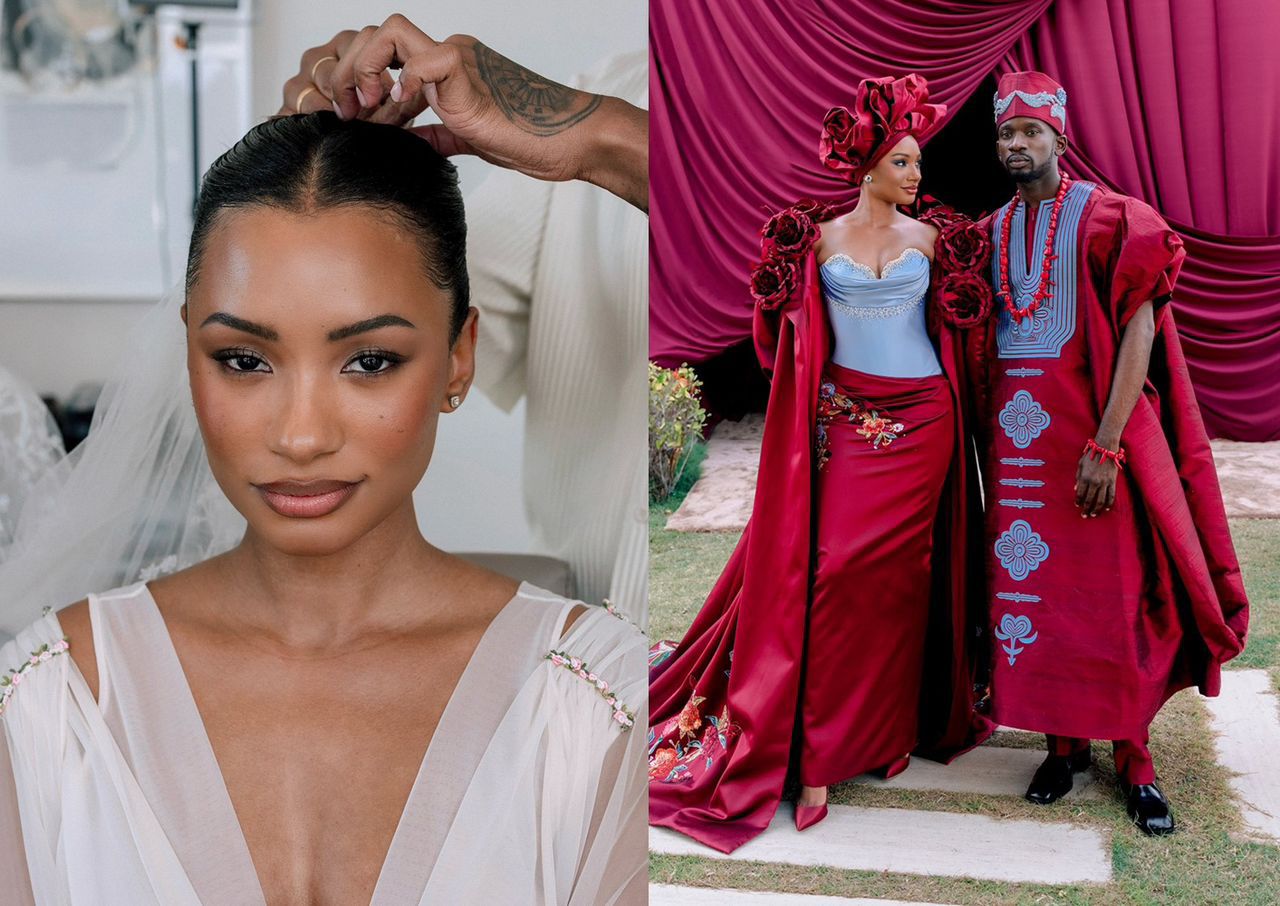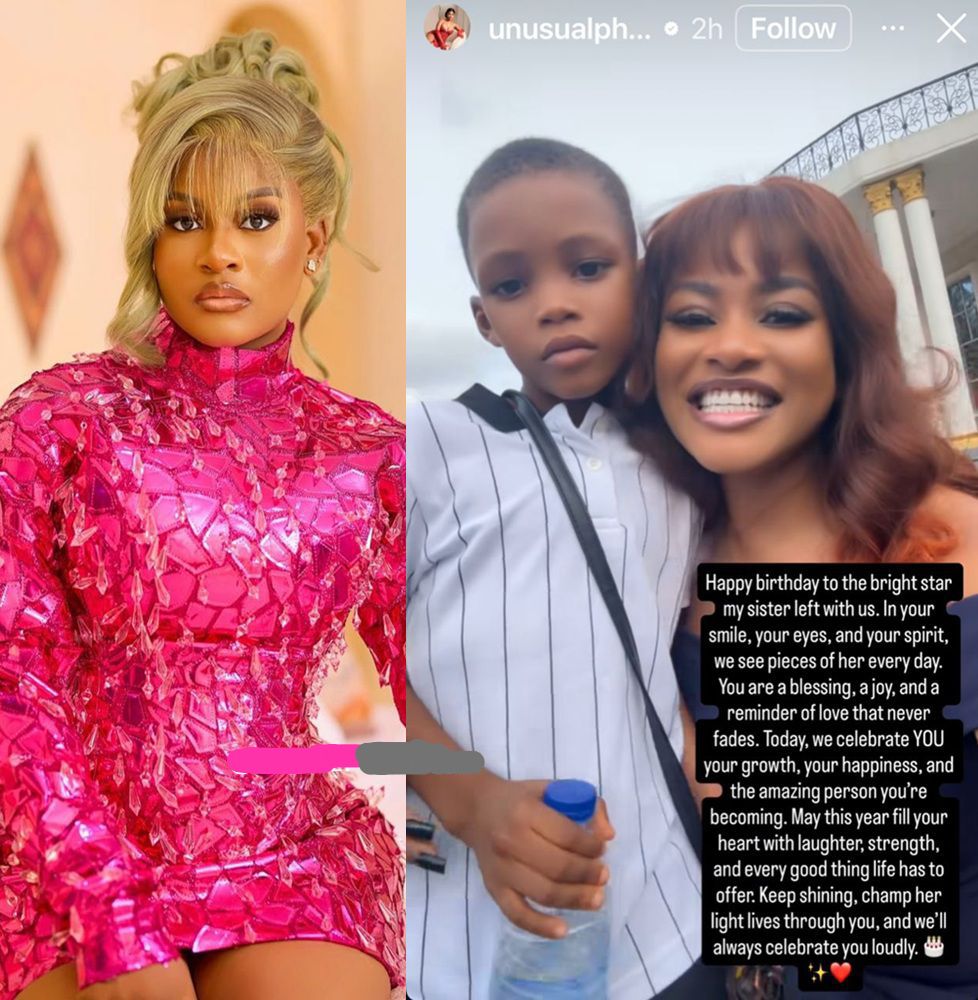
Fake Love or Genuine Grief? Etinosa Idemudia Fires Back at Uriel as Celebrities Mourn Colleague

The death of a celebrity always sends ripples across the entertainment industry and beyond, drawing out emotions from fans, colleagues, and admirers who feel connected in one way or another to the life and legacy of the departed. But alongside the tears and tributes often comes controversy, as people debate the authenticity of public grief, questioning who truly cared and who is simply performing sympathy for the cameras and social media. That controversy was reignited in the wake of a recent celebrity passing, and Nollywood actress Etinosa Idemudia has stepped into the conversation with a firm and unapologetic stance, firing back at fellow reality TV star Uriel over her comments about so-called “fake love.”
Uriel, popularly known for her time on Big Brother Naija, had taken to social media to air her frustrations about what she saw as hypocrisy in the entertainment industry, pointing fingers at those who mourn publicly but allegedly never checked on the deceased when he was alive. Her comments quickly stirred debate among fans and fellow entertainers, with some agreeing with her while others found her words insensitive and unnecessarily divisive during a time when the focus should have been on honoring the memory of the dead. It was against this backdrop that Etinosa Idemudia, known for her boldness both on and off screen, weighed in with a pointed reply that has since gone viral.
In her response, Etinosa made it clear that grief is not a one-size-fits-all experience and that no one has the right to police how others express their pain. “His colleagues and fans have every right to show sadness over his passing whether they checked on him or not,” she stated firmly. “It is not fake love. Everyone has something they are dealing with and your uncle didn’t check on anyone either when he was strong. Let’s not always soil a great person’s memorial with unnecessary fights or bad energy. Allow people show love however they can. Be kind to one another because people you are calling out are also going through this life and its challenges.” Her words, which came with an added layer of compassion as she extended her condolences, struck a chord with many who had grown weary of the blame game that often surrounds the death of public figures.
The actress’s comment has sparked renewed debate, but this time the tide seems to be turning in her favor. Many fans and observers are applauding her for voicing what they had long believed—that grief is personal and cannot be dictated by outsiders. For them, the accusation of “fake love” feels misplaced because the truth is that life often pulls people in different directions. Friends, colleagues, and even family may not always be in constant communication, but that does not diminish the validity of their sadness when loss occurs. As Etinosa pointed out, everyone is carrying their own burdens, and it is unrealistic to expect that people should constantly check up on one another, even though it would be ideal.
What has made her statement stand out even more is the way it reframed the issue of mourning in the public eye. By turning the spotlight back on the collective struggles of humanity, Etinosa reminded everyone that the people being called out for supposed hypocrisy are also battling challenges in their private lives. “Your uncle didn’t check on anyone either when he was strong,” she said bluntly, a reality check that cuts through the sentimentality often attached to the dead. Her words do not dismiss the importance of care and connection but rather highlight the fact that relationships are not always reciprocal and that holding grudges in death only creates unnecessary hostility.
The situation has also reopened conversations about the role of social media in amplifying grief. In today’s digital age, it has become almost expected that tributes will pour in online whenever a public figure passes away. Photos, heartfelt captions, throwback videos, and prayers are posted in rapid succession, serving as both a memorial and a collective space for shared sorrow. However, the visibility of these posts often attracts criticism from skeptics who dismiss them as performative acts rather than genuine emotions. This tension between public mourning and private reality is at the heart of the disagreement between Uriel and Etinosa. Where Uriel sees public tributes as empty gestures from those who failed to show support in life, Etinosa sees them as a natural outpouring of grief that should not be invalidated simply because they happen on social media.
Fans have taken sides, with many flooding comment sections to back Etinosa’s perspective. “Exactly! Just because someone didn’t call every day doesn’t mean they don’t care,” one fan wrote. Another echoed her sentiment: “We all grieve differently. Social media has made people think they can dictate how others should feel, but grief is not for public judgment.” On the flip side, some still argue that Uriel had a point, insisting that genuine relationships are tested in life, not death, and that those who ignore people when they are alive should not pretend to care once they are gone. Yet even those who sympathize with Uriel admit that timing matters, and perhaps her outburst came at the wrong moment, turning what should have been a solemn memorial into a quarrel about loyalty.
What makes this clash particularly striking is how it reflects a larger cultural conversation in Nigeria and beyond. In African societies where community ties and respect for the dead are held in high regard, accusations of “fake love” can be particularly inflammatory. The death of a public figure is seen not just as a private tragedy but as a collective event, with entire communities—fans, friends, and strangers alike—coming together to express solidarity. In this context, Etinosa’s insistence on allowing people to grieve however they choose resonates strongly. It aligns with the cultural emphasis on unity during loss rather than division, making her words not just a personal defense but a reflection of shared values.
As tributes continue to pour in, the focus is slowly shifting back to celebrating the life and legacy of the late celebrity rather than debating the authenticity of grief. Still, the exchange between Uriel and Etinosa has left an imprint on the conversation, serving as a reminder of the complexities of mourning in the age of social media. For Etinosa, the priority is clear: kindness, empathy, and respect should always take precedence over suspicion and judgment. Her words are not just a rebuke to Uriel but a call to everyone watching to rethink how we approach death and how we support one another through it.
In the end, grief is universal, and its expression varies widely. Some may cry silently, others may write long tributes, while others may share old photos or memories. None of these are less valid than the other. To call one “fake” while elevating another is to misunderstand the very nature of loss. By speaking out, Etinosa Idemudia has given voice to those who often feel shamed for how they choose to mourn, reminding everyone that what matters most is not how often you checked in when someone was alive, but the sincerity of the emotions you feel when they are gone. As she put it best, “Allow people show love however they can. Be kind to one another because people you are calling out are also going through this life and its challenges.”
And in a world already weighed down by struggles, that message of compassion and understanding is perhaps the truest tribute one can give to the dead.


